Worried about finding the right motherboard for the Ryzen 7 5800X. Well, I would be as well because you don’t want to pair an incompatible motherboard with such an expensive CPU.
Therefore, in this article, I will bring you the list of the nine best motherboards that you can buy for the Ryzen 7 5800X. The motherboards in this article are meticulously selected to serve a wide range of purposes.
As a result, there are motherboards for different purposes at various price points. Along with telling you the best motherboards, this article will also include a buyer’s guide to provide you with all the information you need about AMD motherboards.
Buckle up because you will get a lot of valuable information in this article. Without further ado, let’s begin.
Short on Time? These Are the Best Motherboards for Ryzen 7 5800X
I know you are curious about which motherboards I have selected, so the following is a quick look at all the amazing motherboards.
*For more info on the motherboards below, click the “Jump to review” button to go to our review of that motherboard.
Premium Pick
Best Overall
Best Under $500
Best Under $400
Best Under $300
Mini-ITX Pick
Best Under $200
microATX Pick
Budget Pick
In-Depth Review
Before we dive into the reviews, let me tell you a little about how these motherboards end up in the best motherboard for Ryzen 7 5800X roundup.
Every motherboard passes through stringent testing and is assigned a score based on its performance. The motherboards with top scores are selected to be featured in the reviews.
Gigabyte is known for its mid-range motherboard, but they also happen to make this top-notch X570 Aorus Xtreme motherboard. The Gigabyte X570 Aorus Xtreme is as good as it gets for an X570 motherboard. It comes with many features that are not present on other X570 motherboards.
Features can only take a motherboard so far. The main aspect that makes the Gigabyte X570 stand above the competition is its amazingly high-quality VRM. It comes with a true 16-phase VRM, ensuring that the Ryzen 7 5800X gets the power it needs.
The excellent efficiency and passive cooling allow users to overclock the Ryzen 7 5800X without facing thermal limitations. The only thing I have to knock this motherboard on is the support for only 4400MHz speed, which is quite low.
The Gigabyte X570 Aorus Xtreme is a handsome-looking motherboard. Gigabyte has taken the time to cover up the PCB with painted black aluminum, which also doubles as the heatsink. This motherboard’s sophisticated yet understated design makes it a flexible option for any PC build.
Although most of the motherboard’s surface is covered, it doesn’t hinder the connectivity. This Gigabyte X570 Aorus Xtreme comes with 3x M.2 slots, 6x SATA ports, 2x RGB headers, and 2x addressable LED headers.
The I/O of this motherboard is quite solid with 5x USB 3.1, 2x USB 3.0, 4x USB 2.0, 1x USB-C, optical out, and 3.5mm audio jacks. The only port missing is the Thunderbolt 4.
The main feature of the motherboard is the support for dual 10G and 1G Ethernet LAN, which comes in handy for running servers, etc. With the Gigabyte X570 Aorus Xtreme, you also get an easy BIOS flashback feature. With this motherboard, you are online from the get-go due to its fast Wi-Fi and Bluetooth connectivity support.
Overall, the Gigabyte X570 Aorus Xtreme like its name suggests is an extreme motherboard for the Ryzen 7 5800X. Therefore, it is best suited for gamers that want to push the Ryzen 7 5800X and use advanced features like dual LAN.
You Should Buy This Motherboard If …
- You want a feature-rich motherboard that you can play around with
- You want the best VRM and power delivery in a motherboard
- You want to overclock the Ryzen 7 5800X without any limits
You Should Not Buy This Motherboard If …
- You care about the value-to-money proposition
- You use the Thunderbolt connection frequently.
The MSI MPG X570S Carbon EK X is a special motherboard. This motherboard is a result of EK and MSI’s newfound partnership. If you are unaware, EK is the household name in the PC cooling space. Therefore, right off the bat, the motherboard sets high expectations.
Let’s start with the elephant in the room. The MSI MPG X570S Carbon EK X is a passively liquid-cooled motherboard, and EK Gaming is assisting MSI in making that happen. Well, the EK gaming liquid cooling solution does not disappoint.
The MSI MPG X570S Carbon EK X is every bit as thermally efficient as one would expect. This motherboard has excellent VRM temperature and never overheats, even when overclocked. Talking about the VRM, it’s excellent.
This motherboard comes with a 14+2 phase VRM, which provides excellent power delivery. You will be able to overclock the Ryzen 7 5800X on this motherboard fairly well. However, you will miss out on some handy overclocking features like the BIOS rollback that the Gigabyte X570 Aorus Xtreme offers.
However, this motherboard has the Gigabyte X570 Aorus Xtreme beat by supporting 5300MHz RAM speed. As for connectivity, the MSI MPG X570S Carbon EK X will fulfill all your needs.
It comes with 4x M.2 slots, 8x SATA ports, 6x fan ports, 1x 4-pin RGB port, 2x 3-pin LED ports, 1x 3-pin Corsair proprietary connector, and 1x EZ LED Control Switch.
The I/O of the motherboard is quite versatile and includes 7x USB-A ports, 1x USB-C port, HDMI, 2.5G Ethernet LAN, and 5x audio jacks.
Like other motherboards, the MSI MPG X570S Carbon EK X also comes with the latest Wi-Fi 6E connectivity, which provides fast data speeds. The motherboard also features Bluetooth 5.1 for seamless connection to wireless gadgets.
All things considered, the MSI MPG X570S Carbon EK X is a unique motherboard that stands out. Its passive water cooling not only results in very low temperatures but also looks quite cool. The motherboard also comes with many handy features that are beneficial for daily use hence making the MSI MPG X570S Carbon EK X the best overall Ryzen 7 5800X motherboard.
You Should Buy This Motherboard If …
- You want a premium motherboard without breaking the bank
- You want a cool-looking motherboard that is unique to any other offering
- You want a very capable motherboard with great features
- You want a motherboard that is efficient and doesn’t overheat
You Should Not Buy This Motherboard If …
- You are looking for a workhorse. This motherboard requires care and maintenance
The ASUS X570 ROG Crosshair VIII Dark Hero is an enthusiast level motherboard from Asus. Due to being in the Crosshair series – ASUS’s top-end motherboard series, this motherboard has all the bells and whistles thrown at it. It has some features that even more expensive motherboards lack, which makes the ROG Crosshair VIII Dark Hero a very interesting motherboard.
This motherboard has a 14+2 phase VRM. For a motherboard having this much power to deal with, you need great cooling as well. Luckily, the efficient heat dissipation system of the ASUS ROG Crosshair VIII Dark Hero works wonders and keeps temperatures low.
The ASUS ROG Crosshair VIII Dark Hero supports RAM speeds up to 5100MHz, which is higher than even the Gigabyte X570 Aorus Xtreme which costs $300 more.
Like the performance, the ASUS ROG Crosshair VIII Dark Hero also hits a home run in the connectivity department. Both the rear I/O and the internal connectivity of this motherboard are very good.
On the rear, this motherboard has dual 2.5G and 1G Ethernet ports, 4x USB 3.2 Gen 2 ports, 6x USB 3.2 Gen 1 ports, 1x USB-C, and gold-plated 3.5mm audio jacks. I want to focus on the audio ports because this motherboard contains a built-in high-quality audio DAC.
Regarding internal connections, this motherboard has 2x M.2 sockets, 8x SATA ports, 3x case fan connectors, 1x CPU fan connector, 1x AIO Pump connectors, 1x W_Pump connector, 2x 4-pin RGB ports, and 2x 3-pin addressable LED ports.
The addition of separate ports for the water pump and AIO pump makes this motherboard great for custom water-cooling setups. Setting a custom water-cooling setup is relatively straightforward with this motherboard.
Now, coming onto the features. This motherboard also supports many features like built-in Wi-Fi 6 and Bluetooth 5, clear CMOS and BIOS flashback buttons, and a pre-attached I/O shield, to name a few.
Overall, the ASUS ROG Crosshair VIII Dark Hero is an excellent motherboard. There is not much wrong with this motherboard. Even if you are looking for a reliable motherboard or want to overclock your Ryzen 7 5800X and use the water-cooling features of this motherboard, it is equally good for both situations. Therefore, if you have a budget of around $500, get the ASUS ROG Crosshair VIII Dark Hero for your Ryzen 7 5800X without any questions.
You Should Buy This Motherboard If …
- You want a premium motherboard with all the bells and whistles
- You want to use Asus’s proprietary features like the AuraSync utility
- You want a motherboard that can handle overclock
- You want a motherboard that can support custom water-cooling setup
You Should Not Buy This Motherboard If …
- You want to add more than two NVMe SSDs to the PC
- You want a motherboard that is simple and easy to operate
The MSI MEG X570S Ace Max takes many cues from its bigger brother – the MSI MPG X570S Carbon EK X, which we discussed earlier. However, the MSI MEG X570S Ace Max is a simpler offering that sticks to a more conventional design.
Despite not having passive liquid cooling, this motherboard remains thermally efficient. The excellent VRM and stable power delivery are also contributing to helping this motherboard achieve lower operating temperatures. This motherboard has an impressive spec sheet and even supports 5500MHz RAM speed.
MSI seems to be on a roll with the looks of their motherboard because this is yet another great-looking motherboard from the brand. The gold accents go really well in the matte black color of the motherboard. The MSI and the Ace logo support RGB lighting, and you switch the colors via the MSI mystic light software.
Talking about the MSI Mystic light software, the 2x RGB and the 2x addressable LED ports on the motherboard are compatible with Mystic light software. Besides that, other internal headers on the motherboard include 4x M.2 slots, 8x SATA connectors, and 6x 4-pin system fan connectors.
Like the great selection of internal headers, the rear I/O of this motherboard is also quite versatile. The motherboard offers 2.5G Ethernet LAN, 7x USB 3.2 Type-A ports, 4x USB 2.0 Type-A ports, 1x USB-C 3.2 port, an optical port, and 5x Hi-Fi audio jacks.
This motherboard also comes with the latest Wi-Fi 6E and Bluetooth 5.1 connectivity. More impressive is the fact that some important features such as BIOS flashback, CMOS switch, and voltage LED indicator are also present on this motherboard.
Overall, the MSI MEG X570S Ace Max is a great value-to-money offering. Despite not costing as much as other high-end motherboards, the MSI MEG X570S Ace Max still manages to keep high-end features and specs. Hence, making the MSI MEG X570S Ace Max a great motherboard for anyone wanting high-end features at the fraction of the price.
You Should Buy This Motherboard If …
- You want top-notch power delivery at this price range
- You want all the features of high-end motherboard at a lower price
You Should Not Buy This Motherboard If …
- You want more than 2.5G Ethernet LAN
ASRock motherboards are well known for their top-notch specs. However, the company struggles with QC issues. This time, though, AsRock has nailed the quality on the B550 Taichi, making it the best B550 motherboard you can get for the Ryzen 7 5800X.
It all starts with the unique and fancy look of the motherboard. The unique rotating gear graphic adorning the motherboard’s front is certainly tacky. Still, it looks very good with the copper accents throughout the motherboard. It looks like a much more expensive motherboard than the price would suggest otherwise.
The motherboard’s exterior is great; however, the best part of the motherboard is the specs hidden behind the beautiful exterior. The ASRock B550 Taichi is the only B550 motherboard to support a true 16-phase VRM, which makes the power delivery of this motherboard comparable to the top X570S motherboard with the Gigabyte X570 Aorus Xtreme.
The ASRock B550 Taichi also supports 4700MHz RAM speed, which is decent for the price, but it could have been better. Overclocking the Ryzen 7 5800X or running XMP profiles is not an issue on this motherboard. Actually, it is among the very few motherboards I would recommend for extreme usage.
The connectivity of this motherboard is generally pretty good. It has all the headers and ports one would want in a good motherboard. The motherboard comes with 3x M.2 slots, 8x SATA ports, and 5x fan connectors.
The rear I/O consists of 5x USB 3.2 Type-A ports, 2x USB 2.0 Type-A ports, 1x USB-C 3.2 port, 2.5G Ethernet LAN, optical-in, HDMI, DisplayPort, and 5x Hi-Fi audio jacks with support for headphones up to 600 ohms.
ASRock B550 Taichi also supports the latest Wi-Fi 6E protocol and Bluetooth 5.1, resulting in seamless connectivity without the need for wires.
On the whole, the ASRock B550 Taichi is the most premium B550 motherboard you can buy. It has many features and stellar performance, making it a great choice for anyone wanting a high-quality motherboard. However, $300 is the price point at which you can get an entry-level X570 motherboard. Compared to that, the ASRock B550 Taichi is a better option albeit a bit overpriced.
You Should Buy This Motherboard If …
- You want the best B550 motherboard for your Ryzen 7 5800X
- You want a motherboard that comes with excellent VRM for overclocking
You Should Not Buy This Motherboard If …
- You want to run RAM at speeds higher than 4700MHz
- You want a value-to-money motherboard because at this price you can also get an entry-level X570 motherboard
Finding a good Mini-ITX motherboard is similar to playing Russian roulette with a fully loaded gun. However, Gigabyte has pulled a rabbit out of their hat by introducing the X570-I Aorus Pro Wi-Fi, which contains many features of the full-size Gigabyte Aorus motherboard.
Contrary to the other motherboard, let’s start talking about this motherboard with a negative. Since it has an X570 chipset, this motherboard has a physical cooling fan. The physical cooling fan is a mechanical part that can break or malfunction over time. Therefore, with this motherboard, you have to be quite regular with your maintenance because the worst that can happen is dust clogging up the fan.
With that out of the way, let’s turn our attention to the positives of this motherboard. The Gigabyte X570-I Aorus Pro WiFi is the only Mini-ITX motherboard with a direct 8-phase VRM. Due to size constraints, the VRM of Mini-ITX motherboards consists of fewer power phases than full-size motherboards.
Despite that, this motherboard can handle the Ryzen 7 5800X with ease. You can comfortably use this motherboard as a base for even a high-end PC build. Performance is also not an issue because the Gigabyte X570-I Aorus Pro WiFi supports RAM speeds up to 5300MHz.
Due to the Mini-ITX form factor, this motherboard is only limited to a maximum RAM capacity of 64GB, which is feasible for some gamers and not good for longevity.
The connectivity of this motherboard is compromised. However, that is the perk of having the Mini-ITX form factor, so I cannot fault this motherboard. As for the headers, this motherboard comes with 2x M.2 slots, 4x SATA headers, 1x 4-pin RGB header, 1x 3-pin LED header, and 1x fan header. The 4-pin and the 3-pin RGB headers are compatible with RGB fusion software.
The rear I/O of this motherboard consists of 5x USB-A 3.2 ports, 1x USB-C 3.2 port, 2x HDMI, DisplayPort, Intel GbE LAN, and 3x audio ports. This motherboard also has handy features like support for Wi-Fi 6 and Bluetooth 5. It also has a BIOS flashback feature for safe and hassle-free BIOS upgrades.
All in all, if you are after the best Mini-ITX motherboard for Ryzen 7 5800X, the Gigabyte X570-I Aorus Pro WiFi, should fit the bill.
You Should Buy This Motherboard If …
- You want the best, most capable Mini-ITX motherboard for Ryzen 7 5800X
- You want a motherboard that prioritizes performance over looks
You Should Not Buy This Motherboard If …
- You want to buy a Mini-ITX motherboard as a choice and not a need for you
- You cannot keep up with the constant maintenance requirements of the motherboard
- You want to install more than 64GB RAM in your PC
The ASUS ROG Strix B550-A Gaming blends a good mix of style and substance. Although coming in a very reasonable price tag of under $200, this motherboard has great features. Using the ASUS ROG Strix B550-A Gaming as the base for your PC will not disappoint.
The thing that makes the ASUS ROG Strix B550-A Gaming stand out from the competition is its white color scheme. No other motherboards in the sub $200 category look as good as the ASUS ROG Strix B550-A Gaming.
The ASUS ROG Strix B550-A Gaming is not all about design. The 12 + 2 phase VRM of this motherboard makes it very capable. It will handle the Ryzen 7 5800X at stock speeds quite easily. However, I won’t recommend overclocking with this motherboard because it is not made for that purpose.
Coming onto the features, this motherboard has everything you need to get up and running. It comes with Wi-Fi 6 support, which despite not being the latest, works quite well. The motherboard also has Bluetooth 5.1.
I have been singing praises of this motherboard so far; however, it is not perfect. The connectivity of this motherboard falls short. The motherboard has only 2x M.2 slots and 6x SATA ports, which can be a deal breaker for people looking to add multiple raid NVMe SSDs.
The rear I/O, on the other hand, is quite impressive and includes 6x USB 3.2 Type-A ports, 2x USB 2.0 ports, 1x USB-C 3.2 port, 2.5G Ethernet LAN, HDMI, DisplayPort, and 5x 3.5mm audio jacks. I especially like the fact that Asus has not skimped on the LAN port.
All things considered, the ASUS ROG Strix B550-A Gaming is a solid option if you are looking for a motherboard that has a decent feature set and delivers good performance at a budget-friendly price tag.
You Should Buy This Motherboard If …
- You want a white motherboard for your PC build
- You want a motherboard that provides decent performance at a budget-friendly price tag
You Should Not Buy This Motherboard If …
- You want to add more than two M.2 NVMe SSDs to the PC.
Most Micro-ATX motherboards are usually the result of the manufacturer trying to reduce cost. However, the ASUS TUF Gaming B550M-Plus WiFi II is an exception. This motherboard is not made with subpar quality and comes with decent specs and features for the price.
The best thing about this motherboard is its VRM. This motherboard comes with an 8+2 phase VRM, which ensures decent power delivery for the price. Due to this motherboard being a budget-friendly option, its VRM capability cannot be compared with the more expensive motherboard. I will also not recommend overclocking the Ryzen 7 5800X on this motherboard.
This motherboard also supports decent RAM speeds of up to 4800MHz. Despite the Micro-ATX form factor, this motherboard has four RAM slots, resulting in a maximum RAM capacity of 128GB.
Like the performance, the connectivity of this motherboard is also quite good for a budget-friendly motherboard. Although you don’t get any salient ports, the basics are covered with this motherboard.
This motherboard has 2x M.2 slots, 4x SATA ports, 1x 4-pin RGB header, 1x 3-pin LED header, and 4x fan headers. I would have liked to see more SATA and M.2 ports, but you can’t have everything in a low price motherboard.
As for the rear I/O, this motherboard consists of 5x USB-A 3.2 ports, 2x USB-A 2.0 ports, 1x USB-C 3.2 ports, 1x DisplayPort, 1x HDMI, 2.5G Ethernet LAN, optical and 5x audio ports. This motherboard also comes with Wi-Fi 6. However, the quality of the Wi-Fi is a little skeptical; therefore, you should use the 2.5G Ethernet LAN when gaming.
All in all, the ASUS TUF Gaming B550M-Plus WiFi II is an excellent option if you are looking for the best Micro-ATX motherboard for the Ryzen 7 5800X. This motherboard has many features, and the competitive pricing makes this motherboard a great deal.
You Should Buy This Motherboard If …
- You are looking for the best Micro-ATX motherboard
- You want a feature-rich motherboard without spending a lot of money
You Should Not Buy This Motherboard If …
- You want a motherboard with a great VRM and power delivery
There are a few motherboards around the $100 price tag that can handle the Ryzen 7 5800X. So that alone makes the Gigabyte B550M DS3H worth considering. However, this motherboard has more to it than being just a budget alternative to other motherboards.
The Gigabyte B550M DS3H comes with a 5+3 phase VRM, which ensures decent power delivery for the Ryzen 7 5800X. This motherboard also supports RAM speeds up to 4800MHz, which is an acceptable speed.
The motherboard will be fine for Ryzen 7 5800X gaming builds with an entry-level or mid-range graphics card. However, if you plan to overclock or use this PC as a specialized machine, then this motherboard will not work.
The same trend also continues with the connectivity of this motherboard. The basic connectivity is fulfilled by this motherboard; however, don’t expect any special ports. This motherboard has 2x M.2 slots, 4x SATA ports, 2x 4-pin RGB headers, 2x 3-pin LED headers, and 2x system fan headers.
The rear I/O has 4x USB-A 3.2 ports, 4x USB-A 2.0 ports, 1x HDMI, 1x DVI-D, 1x Realtek GbE LAN, and 3x audio ports. I am sure you were not expecting this motherboard to have features. However, this motherboard comes with BIOS flashback and support for RGB fusion software, which are quite useful.
You Should Buy This Motherboard If …
- You want a budget motherboard without too much compromise in performance and features
You Should Not Buy This Motherboard If …
- You have a flexible budget and can spend money on something a little nicer
Ryzen 7 5800X Motherboard Buying Guide: Everything You Need to Know
If you want to understand how the motherboard buying process works, this buying guide is for you.
In the buyer’s guide, I will tell you what you should look for when buying a motherboard. Hence, allowing you to distinguish between good and bad motherboards for the Ryzen 7 5800X.
Without this section, you won’t be able to make a more informed decision. Now that you know the significance of the buyer’s guide, let’s dive into it.
Things You Need to Consider Before Buying a Motherboard for Ryzen 7 5800X
Preparation is key to anything. However, you don’t need to spend hours researching because I have done all the work for you.
Before you begin your search for a Ryzen 7 5800X motherboard, decide the budget you can allocate for it. Knowing which budget you are working with makes searching for a motherboard five times easier and keeps you focused on the real task.
Ryzen 7 5800X motherboards range from $100 to $800. So, if you don’t narrow your budget, you will ultimately waste a lot of your precious time
The second thing you want to do is evaluate what you will use the motherboard for. Ask yourself what you are looking for. Knowing what you want will get you the best Ryzen 7 5800X motherboard for your needs.
This point ties in with the theme of the buyer’s guide, i.e., making the best choice for yourself.
Why is the Best Not Always the Right Choice?
If you merely look at the price and the ranking to decide which is best, then that defeats the purpose of evaluating your motherboard needs.
It can be the case that the topmost expensive motherboard, while being superior to a midrange motherboard, is overkill for you. If you buy that you will not be able to use all of its features and hence it will be wasted money.
For example, let’s say you won’t overclock your CPU. Spending upwards of $400 on a high-end motherboard just for using the Ryzen 7 5800X on stock speeds won’t significantly differ from buying a $200 motherboard that can do the same job.
I want you to focus on how the motherboard fits according to your needs and pay little attention to price and ranking as deciding factors.
The Factors You Need to Look Out for When Buying a Ryzen 7 5800X Motherboard?
Now that you know what you need to consider before buying a motherboard, let’s dive into how you can distinguish and differentiate between motherboards to find which works for you.
In order to do that, you need to know the characteristics and factors that make up a motherboard. So, without wasting any time, let’s get to them.
The Chipset
The chipset is the motherboard’s brain, making it a very important factor to consider. The chipset is responsible for how a motherboard works and the features the motherboard benefits from. You will find three kinds of chipsets in the Ryzen 7 5800X motherboard.
- X570
- B550
- A520
X570 is the highest-end chipset that AMD motherboards have to offer. This chipset gets the most advanced features like PCIe 4.0, active and passive cooling, direct phase VRMs, etc.
B550 is the mid-range chipset for AMD motherboards. While technically not on par with the X570 chipset, the B550 still holds its ground. The difference between X570 and B550 is marginally noticeable if you want to use X570-specific features like multiple Gen 4 M.2 slots
A520 is the lowest-end chipset that AMD motherboards have. This chipset is not suitable for the Ryzen 7 5800X; therefore, I have not included any A520 motherboard in this roundup. So, the advice is to not buy A520 motherboards for the Ryzen 7 5800X.
As far as the debate between X570 and B550 motherboards is concerned, buy whatever suits your needs. X570 motherboards are for people who want to overclock the Ryzen 7 5800X and enjoy tremendously valuable features.
On the contrary, the B55O motherboard is suitable for people that want to use their Ryzen 7 5800X CPU on the stock settings without tampering with any voltages or core clocks.
VRM
The voltage regulator module, or VRM, is essential to your motherboard. It is the motherboard component responsible for power delivery to the chipset and the CPU. Due to the sensitivity of the task, you need a motherboard with great VRM, especially because the Ryzen 7 5800X is a high-end processor and requires a high amount of power to run.
The VRM of the motherboard is typically described in power phases. For example, one motherboard will have a 12+2 phase VRM, while others might have a 16+2 phase VRM. Generally speaking, the more the number of phases, the better the VRM of the motherboard will be.
However, this is no hard and fast rule because the quality of the VRM also matters a lot. VRM can get technical, but you don’t have to worry because all the motherboards in this article have decent VRMs that can handle the Ryzen 7 5800X relatively easily.
Of course, the more expensive motherboard will have better VRMs. Still, I have included only those budget-end motherboards with adequate VRM for the Ryzen 7 5800X so that you won’t face any problems later on with power delivery issues.
Form Factor
The form factor refers to the size of the motherboard. Yes, motherboards indeed come in different sizes. The four distinct motherboard form factors are as follows.
- E-ATX
- ATX
- Micro-ATX
- Mini-ITX
The ATX form factor is the standard form factor for motherboards. ATX motherboards are 12” x 9.6”.
The E-ATX form factor is a modified version of the ATX form factor with greater width. E-ATX motherboards are 12” x 13”.
The Micro-ATX motherboards slot in between the different sizes of the motherboard. Micro-ATX motherboards have a size of 9.6”x9.6”.
The Mini-ITX form factor is the smallest for motherboards. Mini-ITX motherboards have a size of 6.7” x 6.7”.
The main difference between the different form factors of motherboards is functionality. It is a given that to decrease the motherboard size, some ports need to be eliminated, limiting functionality.
As far as functionality and practicality are concerned, the ATX and the E-ATX are best, followed by Micro-ATX motherboards and Mini-ITX motherboards. I would go even as far as to say that Mini-ITX motherboards are not the most user-friendly due to their limited functionality.
Another characteristic that comes up with the form factor of motherboards is the size of the PC case. PC cases are sized according to the different form factors of motherboards. For example, an ATX motherboard is best suited for an ATX PC case.
When buying a motherboard, you also have to keep in mind this aspect of motherboards and choose the motherboard according to the PC case you have for an optimal PC build.
Rear Ports
Every motherboard has output ports on the rear. These ports are used to connect different peripherals and gadgets to the motherboard. For example, the USB port on the back of the motherboard is used to connect the mouse, keyboard, USB pen drive, etc.
When buying a motherboard, you must take special precautions to get one with good rear I/O, which includes all the necessary ports. Some essential ports include Thunderbolt, USB-C, and BIOS flashback.
For example, Ethernet LAN in a motherboard can have 1G, 2.5G, 5G, or 10G speed. It is quite obvious that a 10G LAN is superior than a 2.5G LAN
Like the Ethernet Lan, other rear ports will also have different specifications. Try to get the motherboard that offers the best specifications for the price.
Internal Ports and Headers
A motherboard connects all the other components of the PC through its collection of internal ports and headers. Given this, a motherboard must have a good selection of ports and headers to optimize connectivity.
Generally speaking, the internal ports and headers of the motherboard can be categorized into three distinct groups.
- Fan and RGB headers
- ATX and power headers
- Front Panel headers
The fan header connects the case and CPU fans, while the RGB headers are used to power the RGB lighting of the case or the CPU fans.
The ATX header is the main 24-pin power connector for the motherboard. Similarly, other power connectors include 8-pin CPU power connectors, SATA ports, and PCIe slots.
The front panel headers are the selection of ports used to connect the PC case power and reset button along with led lighting indicators of the case. These are the most complicated connections to deal with on the motherboard. Therefore, I have a separate article on front panel connectors if you want to know more about them.
Memory Support
The Ryzen 7 5800X is very nit-picky when it comes to memory. So, consider which DDR4 RAM you use with this processor and also ensure it works with the X570 or the B550 motherboards.
Maximum memory capacity depends on the form factor of the motherboard. ATX motherboards support a maximum RAM capacity of 128GB. In contrast, Micro-ATX and Mini-ITX motherboards typically support a maximum RAM of 64GB.
This is because ATX motherboards have four RAM slots, while Micro-ATX and Mini-ITX motherboards have two RAM slots most of the time.
Maximum RAM capacity aside, the aspect that matters the most is the speed of the supported RAM. Ryzen 7 5800X loves high-speed RAM; hence, the performance difference is quite significant when paired with high-speed RAM.
We are talking about a performance increase of up to 10% in most cases. Taking the motherboards in our roundup as an example, the maximum speed for DDR4 RAM is 5500MHz, which is only supported by some motherboards. The average speed supported by the motherboard is in the 4800-5100MHz range. In contrast, the lowest speed is 4400MHz.
When buying a motherboard, your first target should be to get the motherboard with the highest RAM speed, but if that is not possible, aim for at least the 5000MHz mark. Anything less than that, you are leaving performance on the table.
FAQs
Related Guides
Check out our related motherboard guides.
- Best Motherboard for Ryzen 5 5600X
- Best Motherboard for Ryzen 9 5900X
- Best Motherboard for Ryzen 5 3600
- Best Motherboards for Gaming
Check out some of the other related guides.
- How to Install Motherboard
- How to Upgrade a Motherboard
- How to Update Motherboard BIOS
- How to Update Motherboard Drivers
Final Word
I hope you liked the reviews of the 10 best motherboards available for the Ryzen 7 5800X processor. In this list, my main objective was to evaluate motherboards based on what they are like to use. Therefore, I restrained myself from using the confusing jargon associated with motherboards.
Motherboard buying is the same as anything else. You need to get the motherboard that fits your needs the best. After reading the buyer’s guide, you know which motherboard is better for you.
I would again like to repeat that you should get the motherboard according to your needs and preference and not just by following the price or the rating. Sometimes, a more expensive motherboard might be a detriment for your PC.
The Gigabyte X570 Aorus Xtreme might be the most premium motherboard for the Ryzen 7 5800X, but most gamers may find it overkill for their use. The Gigabyte X570 Aorus Xtreme caters to a specific group of gamers that want to do more with their PC than just use the CPU on stock settings.
If you just want to use the Ryzen 7 5800X without tampering with the core clock or the voltages, then the ASRock B550 Taichi would be good enough for your use. On the contrary, if you are on a budget, then there is no wrong in buying the Gigabyte B550M DS3H because that motherboard will be able to run the Ryzen 7 5800X without any worries.
If you are still confused about which motherboard is best for your use, then feel free to ask in the comment section. On the contrary, if you have already chosen the motherboard for your Ryzen 7 5800X, let me know which motherboard you are going with.

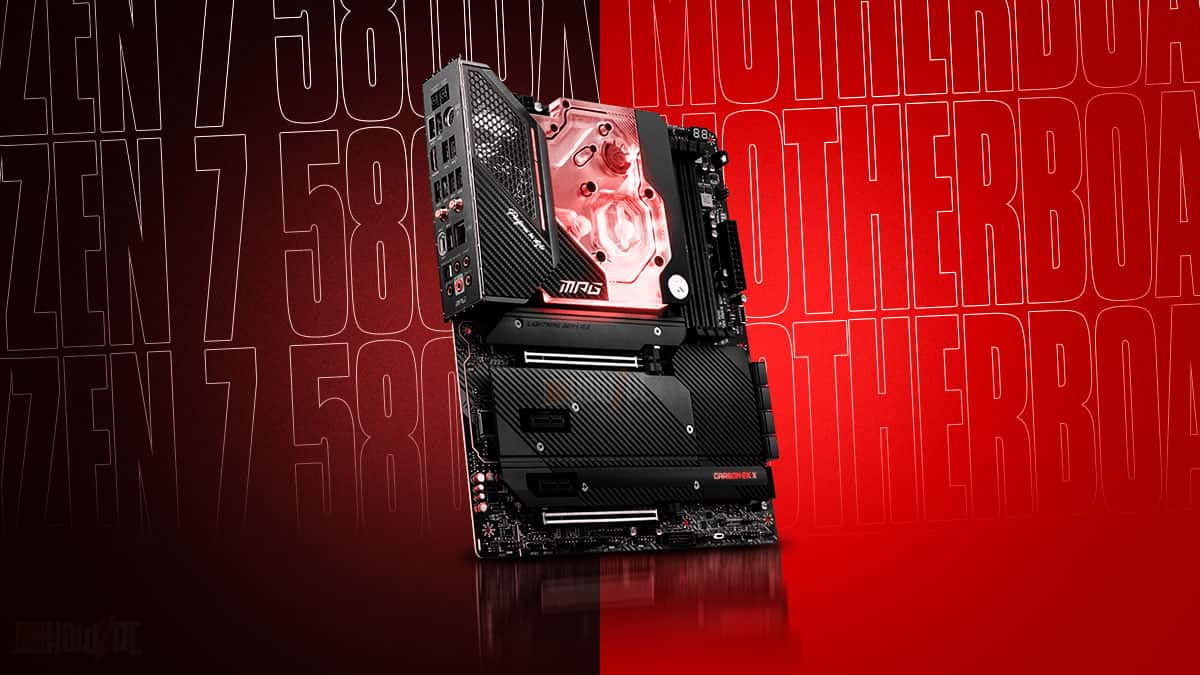









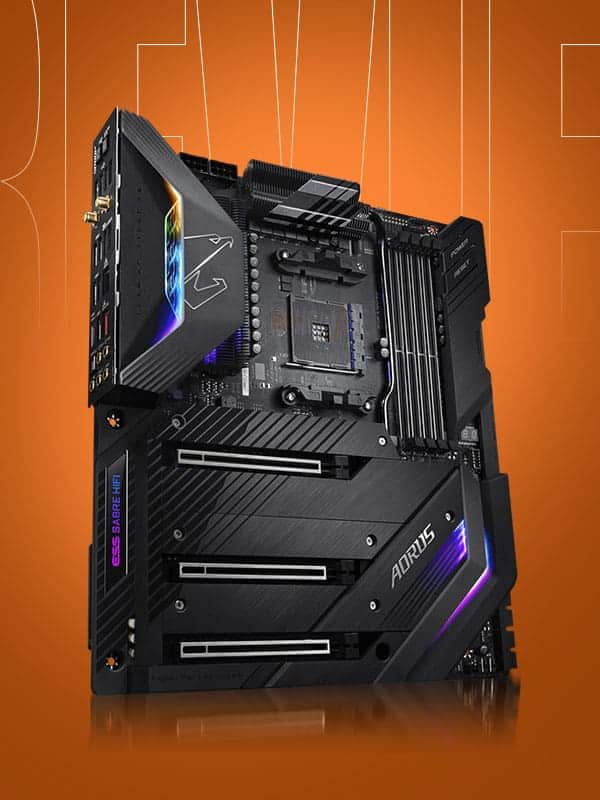
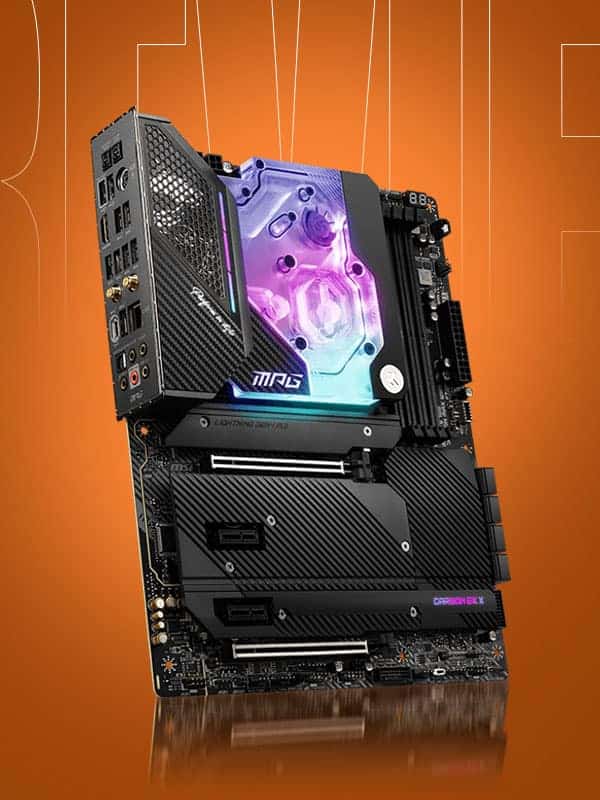
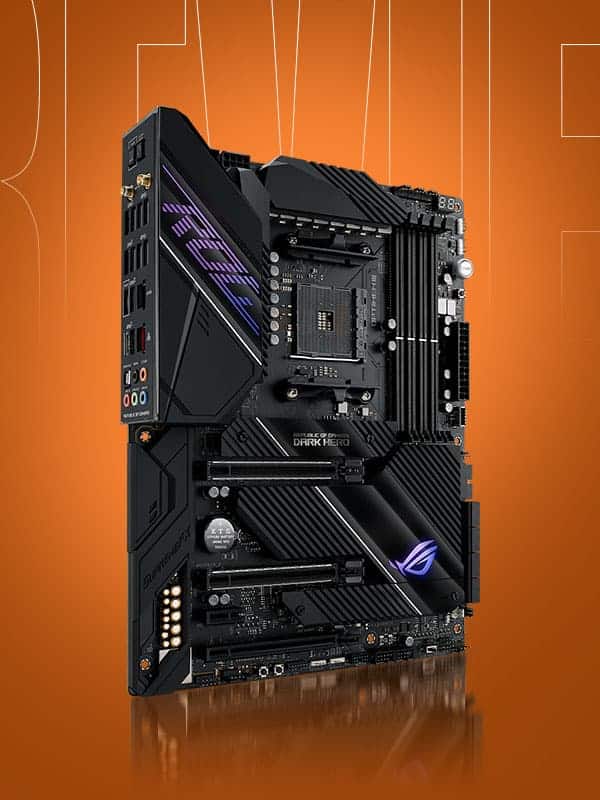
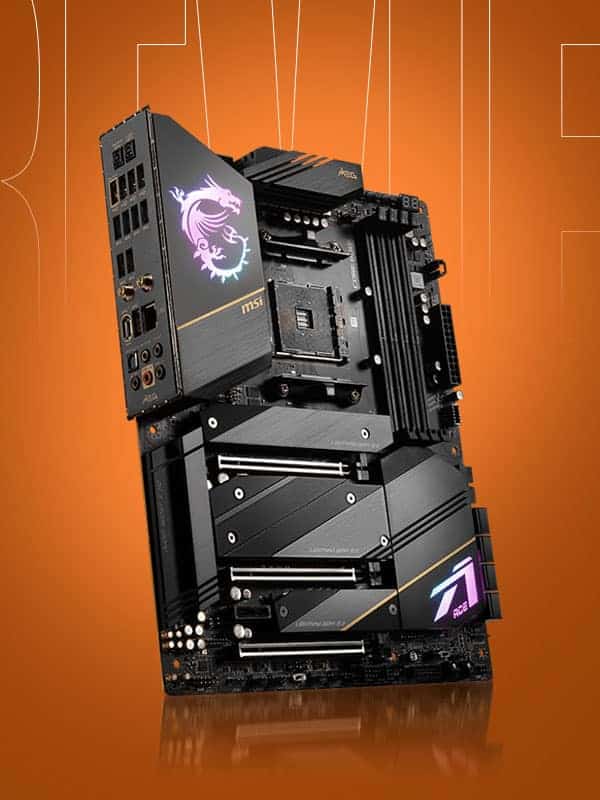
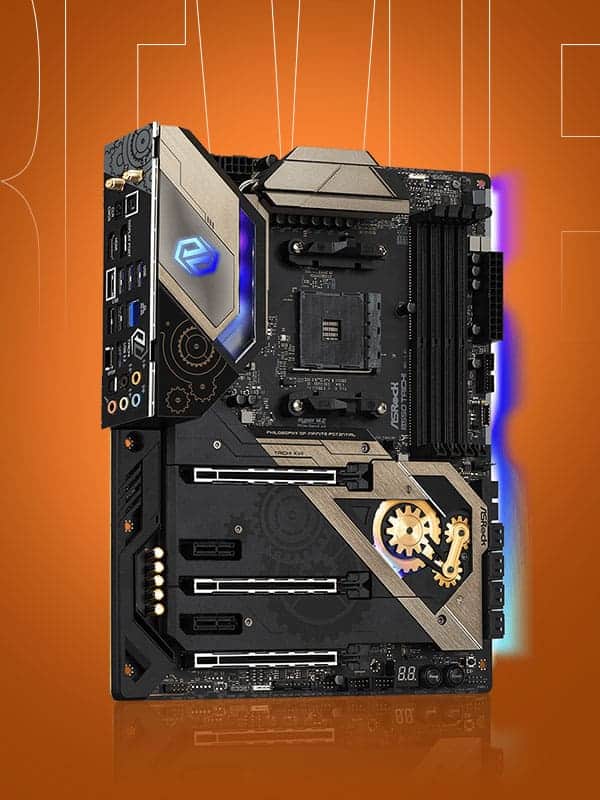
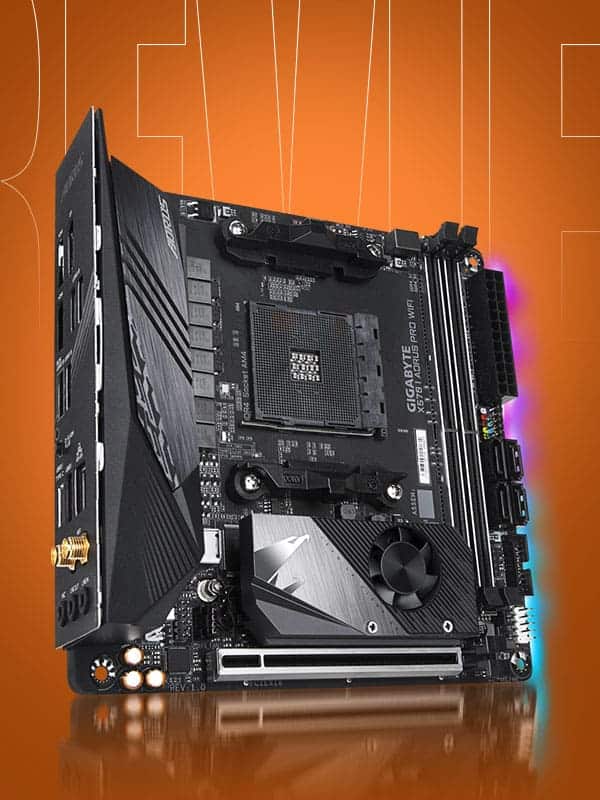
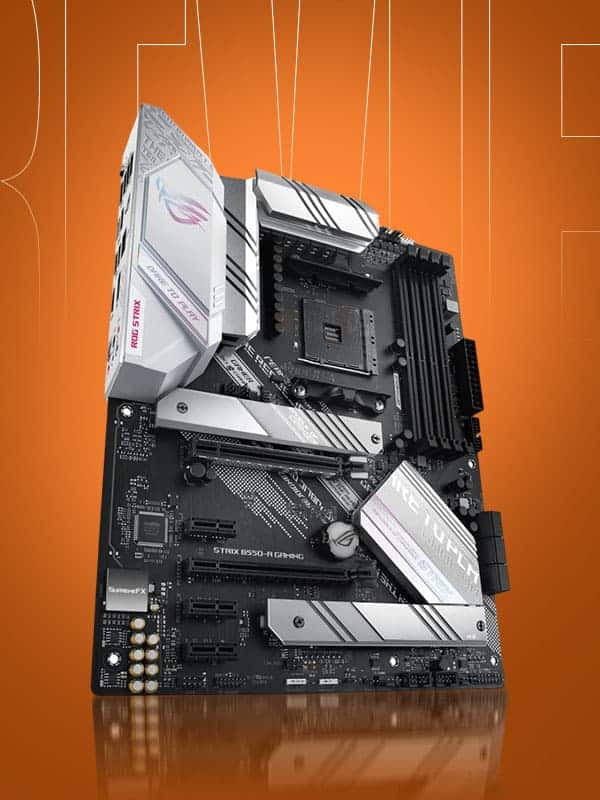
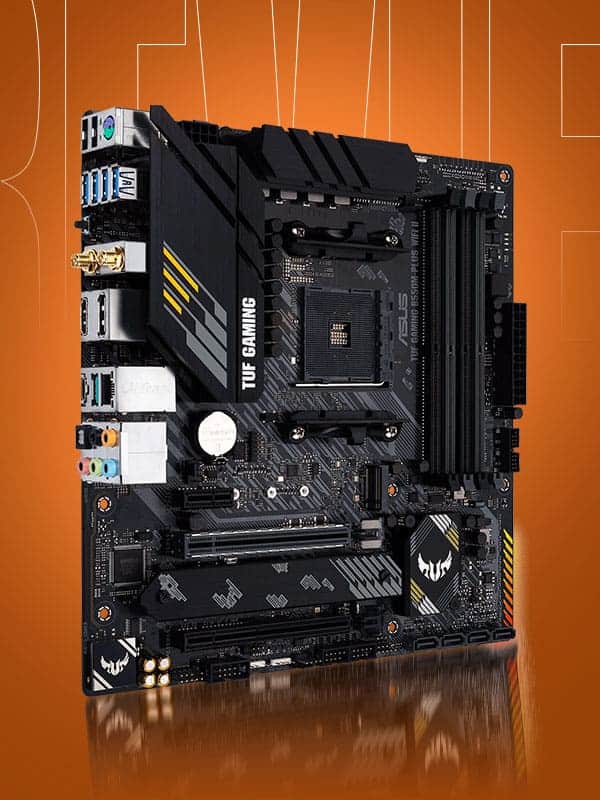
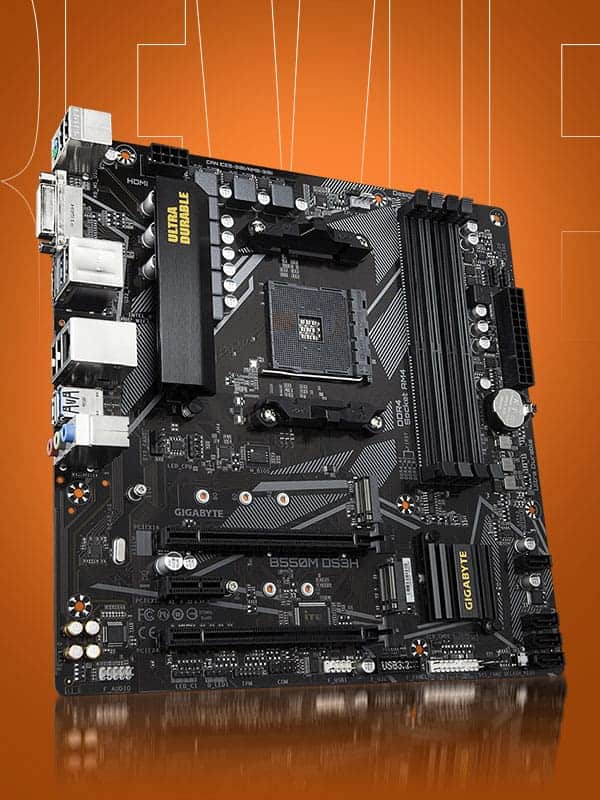

The Author Who Worked On This Article
Waleed Madni
A tech enthusiast with the spirit of a competitive gamer. Waleed has been around computers ever since he was young and has witnessed the progress of the machines he loves the most. Fascinated by what tomorrow has to offer, he keeps himself up to date with the latest technology and gaming trends.